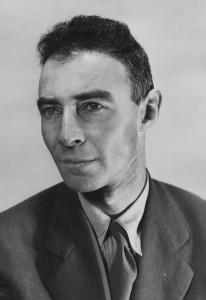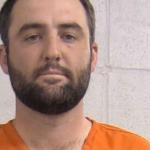
Today is Memorial Day. It is our national holiday when Americans honor and mourn all those who died in the service of our nation as members of the United States Armed Forces. I served seven years in the reserves in both the Army and Air Force, with six months active duty in the Army. My dad served in the U.S. Army in World War II (WWII), and so did some of my uncles and thereafter.
That was back during the draft, when most American men had to serve some active duty in our nation’s Armed Forces. Nowadays, it is different, with an all-volunteer force. But lately, it has not been easy for our military to recruit volunteers. If the U.S. gets involved in deeper conflicts in the future, it may have renew our military draft.
In considering war and people dying from it, the most frightening and instantaneous destruction of human life during wartime has been the detonation of two atomic bombs during WWII. The U.S. has been criticized for doing that, and there has always been much discussion about the morality of that decision. As President Harry Truman had said of his Oval Office at that time, “The buck stops here.” That statement sure was true of his decision to drop those two atomic bombs.
The main argument for that decision was that it was believed it was the only way Japan would surrender, which seemed to have proved true, and without it millions of more lives would have been lost due to a prolong war. In making that decision, both Truman and J. Robert Oppenheimer voted to drop the bomb, even to drop both bombs. Thus, Little Boy, the name of the first atomic bomb, was dropped on Hiroshima on August 6, 1945, and Fat Boy was dropped three days later, on August 9, on Nagasaki. Almost 200,000 Japanese people were killed from these two bombs. But nowadays, many nations have nuclear bombs that are way more powerful than that, and just one of them could kill ten million people or more if dropped on a very populated city.
Last night, I watched a one hour television documentary about J. Robert Oppenheimer and his role in making the atomic bomb, which the nation dubbed “the Manhattan Project.” Oppenheimer became known as “the father of the atomic bomb.” In contrast, he was not all that enthusiastic about doing it, almost the quit the project, hoped it would lead to a decline in advanced weaponry, and afterwards, as did his colleague Albert Einstein, advocated for world disarmament of nuclear weapons.
Oppenheimer was born in New York City in 1904. In 1923, he achieved a doctorate in philosophy. He graduated with a doctorate in physics at Harvard College in 1925. In 1936, he became a full professor at the University of California at Berkeley. In 1942, he was recruited for the Manhattan Project. The U.S. feverishly threw itself into this immense endeavor out of a seemingly justified fear that Adolf Hitler’s Nazi regime in Germany was working on developing an atomic bomb. Oppenheimer had expertise in nuclear fission and that made him the most important scientist on this project, which included the now more famous physicist and mathematician Albert Einstein.
Chain-smoking Dr. Robert Oppenheimer, who later died of throat cancer, had become enamored with the deserts of New Mexico. He visited there periodically on vacation mostly because of its cowboy culture. When he was asked for his opinion about where to establish the headquarters of the very secretive Manhattan Project, his suggestion of New Mexico was adopted and the Los Alamos National Laboratory became its home.
At this time, Robert Oppenheimer was married and had two young children. But before that, this handsome and extremely intelligent man had a romantic relationship in the late 1930s with a very intelligent woman named Jean Frances Tatlock who had been a student at nearby Stanford University. Later, when Oppenheimer was well into the Manhattan Project, professional psychiatrist Jean Tatlock phoned him and told her she was very depressed. Oppenheimer also struggled with depression all his life. Married man Robert then flew to San Francisco and was with Jean for about a day. She was a member of the Communist Party USA, which she often had discussed with Robert. Oh, Oh! Those two were under surveillance that night by U.S. Army intelligence agents.
Back then, the Communist Party USA had a lot of American members. The U.S. Bureau of Investigation, later renamed the Federal Bureau of Investigation (FBI), had Ms. Tatlock under investigation, whether she knew it or not. They sometimes did that with Oppenheimer as well. After the war, Oppenheimer came under more serious investigation as to whether or not he was a spy for the Soviet Union. Senator Joseph McCarthy of Minnesota made it hard on lots of Americans with congressional hearings do to his allegations, most of them false, of membership in the Communist Party USA.
Oppenheimer was with Jean Tatlock on June 14, 1943. She died months later of apparent suicide. She had introduced him to John Donne’s poetry. It includes discussion of the Christian belief in the doctrine of the Trinity, that the God of creation, the God of the Bible is not exactly a single being but three co-equal and co-eternal Persons: God the Father, Jesus Christ the God-man, and the Holy Spirit. They reported often discussed John Donne’s poetry and sometime the Trinity. Later, Oppenheimer reportedly explained concerning the creation of the atomic bomb, that it was a “harnessing” of matter that God had created.
When the atomic bomb was created, it was decided that they must test it first to see what they had. For, they were not absolutely certain that it would work as expected. Moreover, it exploded with far greater destruction than anyone on the Manhattan Projected had expected. A site was chosen to test the bomb, and it was 125 miles southwest of Los Alamos Laboratory. Oppenheimer was asked what they should name this test site. He said “Trinity,” and that was what it was named.













